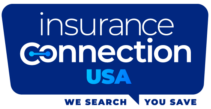Navigating the medical system is complicated, and deciding on an insurance plan that covers your needs can be even more complicated. Fortunately, at least some of your options can be broken down and made manageable.
Let’s take a hypothetical situation: you’re a person who will celebrate his 65th birthday at least 4 months after he starts receiving Social Security benefits. This means you will automatically be enrolled in Medicare Part B. At the moment, you need only preventative care, but news of Part B excess charges have you worried. What are these excess charges, and how will they affect you?
What Will Part B Cover?
Part B is designed to cover preventative care (such as flu shots and check ups,) ambulance rides, mental health care, durable medical equipment (such as canes or blood sugar strips,) and certain outpatient prescription drugs.
Most medical providers have signed an agreement to accept Medicare, and these providers are said to have accepted assignment or be participating providers. Doctors, providers, and suppliers that have accepted assignment charge the prices that Medicare has approved for Medicare-covered services and only charge you for the Medicare-approved coinsurance and deductible. That health care provider will send the bill directly to Medicare after they have treated you, and they will generally wait for Medicare to cover its share before charging you. Medicare will pay the provider 80 percent of the bill, and you’ll be charged for the remaining 20 percent.
What Will Be Excess Charges?
Some health care providers don’t accept Medicare assignment. This means that they haven’t agreed to accept Medicare’s prices or to bill you only for the coinsurance and deductible that Medicare has set. They are called non-participating providers, though they can agree to accept Medicare prices for some services.
You can still go to these providers for your medical care. However, they can charge 15% more for their services than they get paid. This is the Plan B excess charge, and the 15% price limit is called the ‘limiting charge.’ The limiting charge doesn’t apply to all durable medical goods and supplies. It will be used for a select number of Medicare-covered services.
You might also have to pay the charge up-front and personally submit the claim to Medicare.
How Can You Avoid These Excess Charges?
You can make sure that the people that you get your health care from accept Medicare assignment. You can go to Medicare.gov to find out if your current providers are enrolled in the program. Or purchase a Medicare supplement plan that covers the Excess charges gap. Plan G would cover the gap but plan N would not.
Exceptions
Most providers have to either enroll in Medicare or opt-out completely, and if you do get your care from someone who isn’t enrolled yet, you will get enough of your prescription for 3 months while your prescriber either enrolls or opts out.
Non-participating providers will still submit a claim to Medicare for Medicare-covered services.
There are some doctors that opt out of Medicare entirely and have private contracts with their patients. Medicare won’t cover any services given by these providers unless it is an emergency. Opting-out is a specific process that is different from people not accepting Medicare assignment, and they can’t make you sign one in an emergency situation.
Can You Get Help In Getting The Best Insurance?
There are many options for people who are looking for health insurance, but knowing which one is best for you takes a lot of expertise. At Insurance Connection USA, we specialize in finding the right plan for you and helping you enroll in Medicare. We represent all the Medicare insurance companies and strive to recommend the best plans for each individual without bias. Contact us today if you want help with Medicare enrollment and insurance plans.
